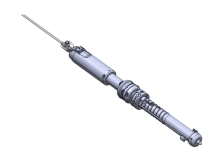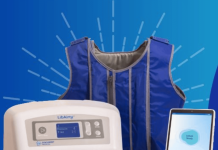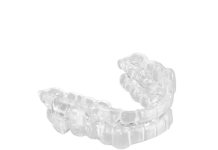Massachusetts-based orthobiologic and spine-fusion firm, Bone Biologics Corporation, has announced that it has treated the first two patients in a pilot clinical study of its NB1 bone graft device designed to provide greater control over bone regeneration.
The multicentre, prospective, randomised pilot clinical trial (NCT03810573) of the NB1 device will study 30 adult patients who are undergoing transforaminal lumbar interbody fusion (TLIF) to treat degenerative disc disease (DDD), with the primary endpoints being the determination of the graft’s safety with additional endpoints focusing on fusion success, pain, function improvement and adverse events.
Related: BaroPace pacemaker algorithm meets both primary endpoints in heart failure trial
The company’s NB1 device is comprised of a demineralised bone matrix (DBM), a foam-like material made from other bones that is typically used for bone regeneration as part of a graft, combined with NELL-1 protein used to promote further growth.
Market research carried out by GlobalData found that the US bone grafts and substitutes market will generate $2.2bn in 2030 in the US, increasing at a compound annual growth rate (CAGR) of 3.2% from $1.6bn in 2020.
Whilst the study design was previously reviewed and agreed upon by the US Food and Drug Administration’s (FDA) Division of Orthopedic Devices, both of the first two patients treated in the trial lived in Australia.
Previously the Human Research Ethics Committee of Australia gave a green light to the pilot study in April of 2023, with the Melbourne-centered teaching hospital, Monash Health chosen as the trials first site. All three current study sites are listed in Australia.
Jeffrey Frelick, president of Bone Biologics, said: “We have worked diligently to prepare for this important milestone and are delighted that the first patients have been treated in our pilot clinical study. Preclinical animal studies demonstrated a strong safety profile, fusion success and bone healing of NB1, and we are optimistic that we will show fusion success in humans.
“There is a clear need for a product that creates rapid, controlled and guided bone growth only in the presence of existing bone and not elsewhere in the body. We aim to demonstrate that NB1 will address this opportunity and compete in the $3bnannual global market for spine fusion products.”
The trial is open only to patients living with DDD at one spine level from L2-S1 and may also have up to Grade 1 spondylolisthesis or Grade 1 retrolisthesis at the involved level.
Elsewhere in the field of bone graft devices, the US FDA has granted breakthrough device designation to the UK-based Renovos Biologics for Renovite BMP-2, a synthetic nanoclay bone fusion gel.




